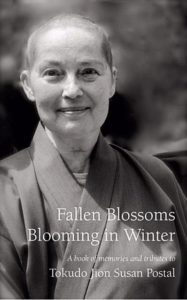Understanding Karma and Responding to Suffering: Lessons from Buddhist Teachings
Contributor Club post (fee-based)
Guest Post…
Sid Kemp, is a highly experienced life coach and devoted Zen practitioner with 40 years of dedicated practice. He is the author of multiple Amazon bestselling books published by prestigious publishers like McGraw-Hill and Entrepreneur Press. In addition to sharing Buddhist meditation since 1987, Sid has also contributed articles to Entrepreneur.com and his wisdom has attracted a loyal following of over 6,000 people on Quora.
Question: I’m confused by karma. My friend is a good, compassionate person, but his life has been full of catastrophic events, over & over. He’s now permanently disabled. Is this his karma from his previous mistakes? It doesn’t seem fair.
Sid’s Answer: Everyone is confused by karma, at least until we attain a very deep enlightenment. And, sadly, life and the world are not fair. A deep understanding of karma teaches us that.
The deepest Zen teaching I have found about karma is that, when one deeply Awakens (attains enlightenment), karma becomes clear. Karma never ceases operation. There is no accumulation of karma. Karma operates in the present moment, not in lifetimes. Karma arises and operates before time and space arise and operate. All karmic teachings about lifetimes and rebirth or reincarnation are not a deep understanding of the teachings of the Buddha.
Your friend’s situation calls for deep compassion, and calls it forth from me. The most relevant Buddhist teaching is simply the First Noble Truth: In all of life, there is suffering. Suffering appears greater at some times and less at other times. It appears more for some than for others. All this is unfair, and this unfairness leads to more suffering.
So what is a healthy, Awakened response to suffering such as your friend is experiencing? What does the Buddha teach on this? I speak as a lifelong Buddhist practitioner and meditation teacher and as someone who continues to experience chronic pain and debility in spite of my own best efforts to be healthy.
Asking, “Why did this happen to such a person?” is not part of the Buddha’s practice. In deep Buddhist and Zen practice, we respond to present conditions with presence and appropriate action. We dwell in compassion and extend it to those who are suffering. We deepen our wisdom to see how we might nourish, support, or perhaps guide those who are suffering. To deepen our wisdom, we see that we begin each day by eliminating suffering and the roots of suffering inside of ourselves. The more free of delusion and suffering we are ourselves, the more clarity and strength we have to offer.
To put it simply, “Why?” is not a helpful question. Helpful questions are: “How do I hold this?” and “How do I respond?” And healthy answers to those questions are the embodiment of love and wisdom in action and in silence.
Whether the suffering is our own or someone else’s, we dwell simultaneously in effective action and also in patient, peaceful presence. It is difficult to be deeply committed to making our best effort and also free of attachment to results. Living this way, we reduce our suffering and help others reduce theirs and grow into greater Light.
Where is karma in all of this? Karma is found most clearly in habit formation. Each action anyone performs makes it more likely that we will repeat that action. This includes habitual thoughts and feelings. Very importantly, it includes motivation and intent. And, of course, it includes our words and deeds.
No one has an easy life, though some clearly have it harder than others. But the Buddha teaches that there is no value in making comparisons. Rather, let us accept each moment as it is, pain, suffering, life, joy, peace and all. Right action is cultivating health, joy, and peace in ourselves and others, wishing nothing but well-being for all.
Even in suffering, we can do that. And the people I know who have lived this way through great suffering are or were wonderful gifts to the world.
I dedicate this post to Susan Jion Postal sensei, who lived courageously and compassionately with Lupus disease and was a gift to all who knew her.

Read more from Sid on his Quora profile.
